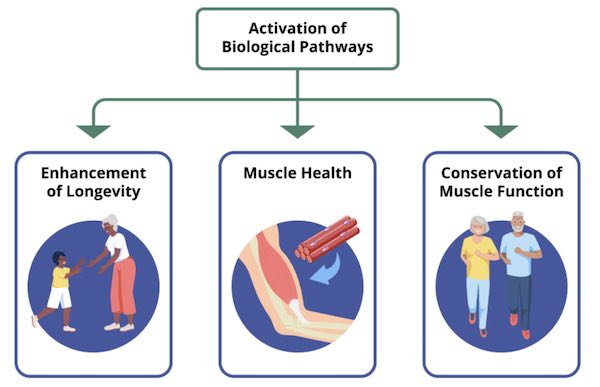Cutting calorie intake by 12 percent can extend your life by boosting energy and rejuvenating muscles.
Curbing calories while maintaining vitamin and mineral levels, known as a calorie restriction diet, also lowers inflammation and increases metabolism, according to a new long-term study.
Calorie restriction, has long been known to delay the progression of age-related diseases in animal models. This new study, published by the National Institute on Aging (NIH), suggests the same biological mechanisms may also apply to humans.
The diet appears to stimulate healthy aging genes, allowing us to live longer and healthier lives.
Researchers analyzed data from the Comprehensive Assessment of Long-Term Effects of Reducing Intake of Energy (CALERIE), a two-year study supported by the NIA that found that when the group was able to reach a 12% reduction in calories, it was enough to activate most of the biological pathways that are important in healthy aging.
“A 12% reduction in calorie intake is doable and may make a big difference in your health,” said corresponding author and NIA Scientific Director Luigi Ferrucci, M.D., Ph.D.
POPULAR: 8 Habits to Take Up by Age 40 if You Want to Live Decades Longer
The research team sought to understand the molecular underpinnings of the benefits seen in limited, previous research of calorie restriction in humans. One study showed that individuals on calorie restriction lost muscle mass and an average of 20 pounds of weight over the first year and maintained their weight for the second year.
However, despite losing muscle mass, calorie restriction participants did not lose muscle strength, indicating calorie restriction improved the amount of force generated by each unit of muscle mass, called muscle specific force.

For the current study, scientists used thigh muscle biopsies from CALERIE participants— a randomized controlled group of young and middle-aged non-obese healthy men and women—following up at one-year and two-year intervals.
The researchers confirmed calorie restriction affected the same gene pathways in humans as in mice and nonhuman primates. For example, a lower caloric intake upregulated genes responsible for energy generation and metabolism, and downregulated inflammatory genes leading to lower inflammation.
PREVENTION TIP: MIND and Mediterranean Diets are Associated with Fewer Alzheimer’s Plaques and Tangles
“Since inflammation and aging are strongly coupled, calorie restriction represents a powerful approach to preventing the pro-inflammatory state that is developed by many older people,” said Ferrucci.
Support Better Diets By Sharing This on Social Media…




















